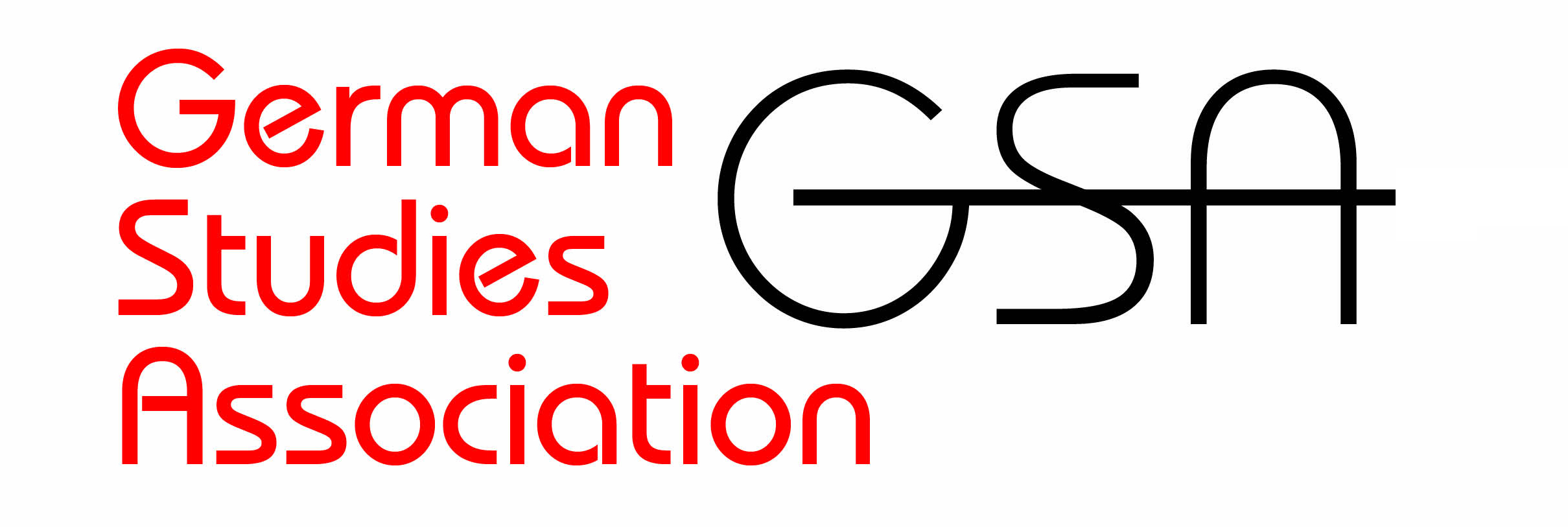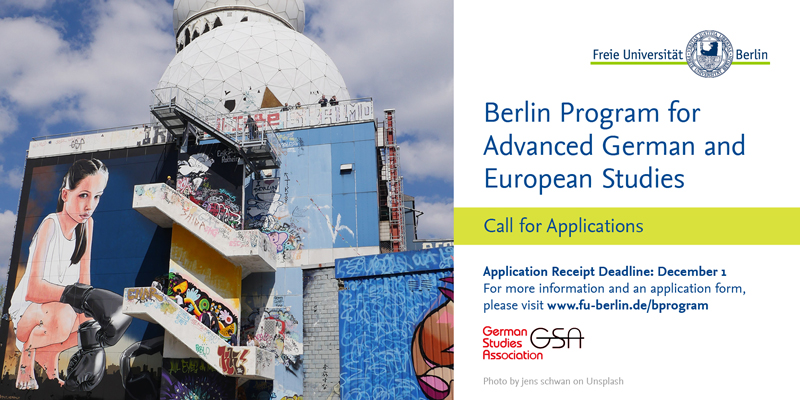Berlin Program for Advanced German and European Studies
The German Studies Association has representatives involved in the selection process of this important program, which is open to GSA and non-GSA members. The Berlin Program for Advanced German and European Studies offers up to one year of research support at the Freie Universität Berlin and is open to scholars in all social science and humanities disciplines, including historians working on the period since the mid-18th century. The program accepts applications from U.S. and Canadian nationals, permanent or long-term residents. Applicants for a dissertation fellowship must be full-time graduate students at a North American university who have achieved ABD status by the time the proposed research stay in Berlin begins. Also eligible are U.S. and Canadian Ph.D.s who have received their doctorates within the past two calendar years.
For more information, please visit the Berlin Program's website.
The Berlin Program for Advanced German and European Studies is soliciting applications for their fellowship competition 2025/26.
Please spread the word about this great opportunity. Application deadline: December 1.
The Berlin Program offers up to one year of dissertation or postdoctoral research support at the Freie Universität Berlin, one of Germany’s leading research universities. It is open to scholars in all social science and humanities disciplines, including historians working on German and European history since the mid-18th century.
The program offers five different fellowships:
- Berlin Program Dissertation Fellowship
- Berlin Program Postdoc Fellowship
- Max Kade Berlin Postdoc Fellowship
- Kerstin Leitner Berlin Dissertation Fellowship
- Kerstin Leitner Berlin Postdoc Fellowship
For key features and eligibility, check our Fellowships Overview.
Located in one of the densest and most innovative academic regions in Europe, a Berlin Program Fellowship offers extraordinary research opportunities. Each semester, our colloquium led by distinguished scholars, serves as the central meeting point to share, discuss and support each other’s work.
The Berlin Program is administered in close cooperation with our North American partner and co-sponsor, the German Studies Association (GSA), the largest organization of scholars, professionals, and students who focus on the study of German-speaking Europe from all periods of history and all relevant disciplines.
Find out more about the Berlin Program, read the information under Application, or contact us via email: bprogram[at]zedat.fu-berlin.de.


